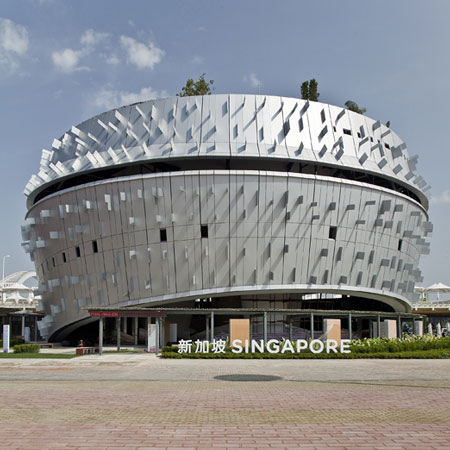
Covered in protruding tabs, the round building is intended to represent the workings of a child’s musical box.
Pavilion Features
The music-box-like Singapore Pavilion is a two-story structure with an “Urban Symphony” theme. The theme is inspired by the harmony of unique elements in Singapore: progress and sustainability, urbanization and greenery, tradition and modernity and a cosmopolitan mix of residents of different races living peacefully together.
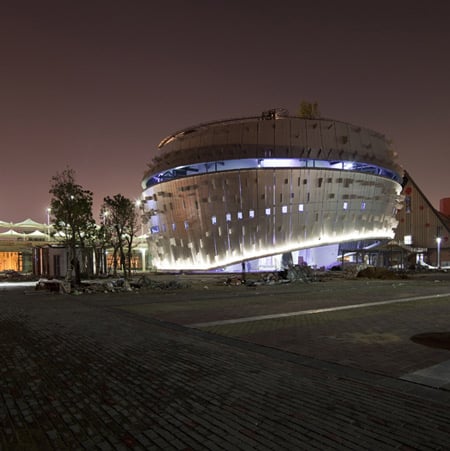
Pavilion Display
The two environmental aspects that Singapore has successfully tackled in balancing progress with sustainability – water and garden – form the softscape of the pavilion as its two design elements. The pavilion incorporates an orchestra of elements into its design – music fountains, an interplay of sounds and visuals, and roof garden flora, with the country’s unique rhythm and melody.
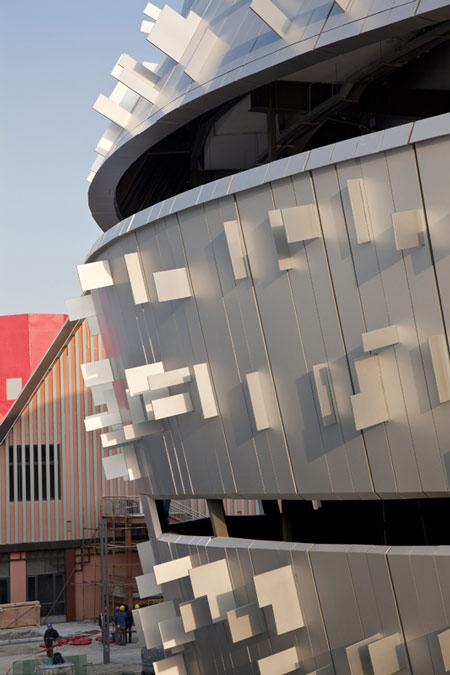
Highlight 1: Unique Design
Unique Design Supported by four columns of different profiles, the entire structural system features floors of different shapes and sizes, connected by ramps and stairs suspended from trusses smoothly, to form a tensional balance, which symbolizes a harmonious coexistence of people who live, work and have fun in Singapore.
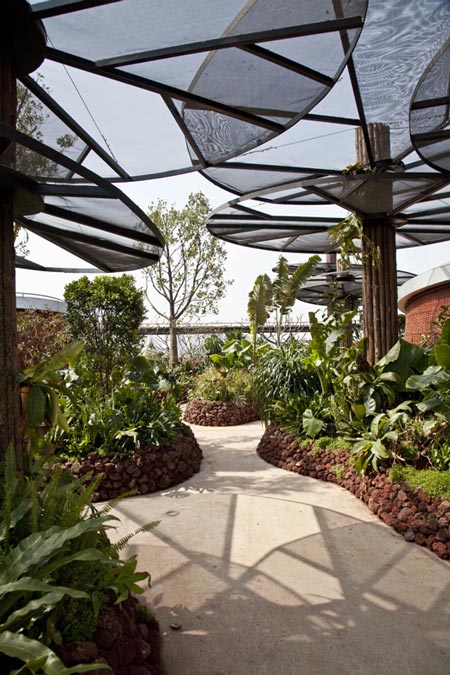
Highlight 2: “Hanging Garden”
“Hanging Garden” The unique Singapore experience will culminate in the “Hanging Garden” – a rooftop garden landscaped with mysterious flora and music fountains. Here visitors will get a first-hand feel of Singapore as a Garden City.
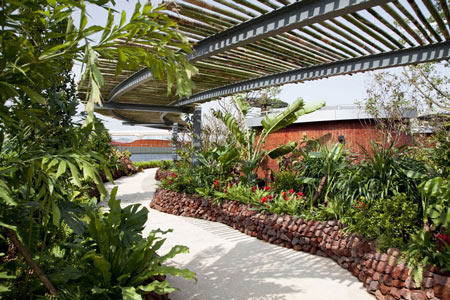
Highlight 3: Environmental Protection
Singapore Pavilion also highlights its environment-friendly design. Facade slits and chilled water along the perimeter of the ground floor centre space will help reduce massive energy consumption whilst recyclable building materials will feature extensively.
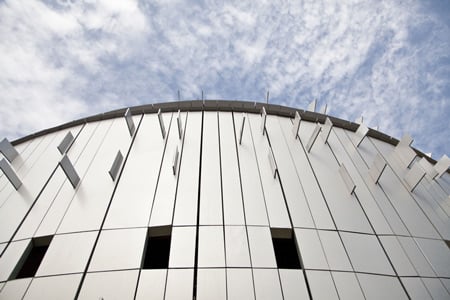
Highlight 4: Beautiful Night View
Beautiful Night View Fountains at the square outside of the pavilion is a prelude of “Urban Symphony”. When night falls, dazzling light rays flow out from the interlaced windows and facade slits, rendering the “Music Box” with more charming beauties.
Architecture by by Kay Ngee Tan Architects.
Photos by Montse Zamorano.















